PANELS & PANELISTS
REPRESENTING THE BLACK HOME
This panel will explore the myriad ways artists, creatives, and designers from Black diasporic communities have represented home. We consider how the Black home is captured and portrayed in visual, auditory, and multi-media arts and the significance of these portrayals toward the formation of Black identity and community building. What do we keep in frame, and why? What can we learn from these representations of home, and how can this knowledge be leveraged in design pedagogy and practice?
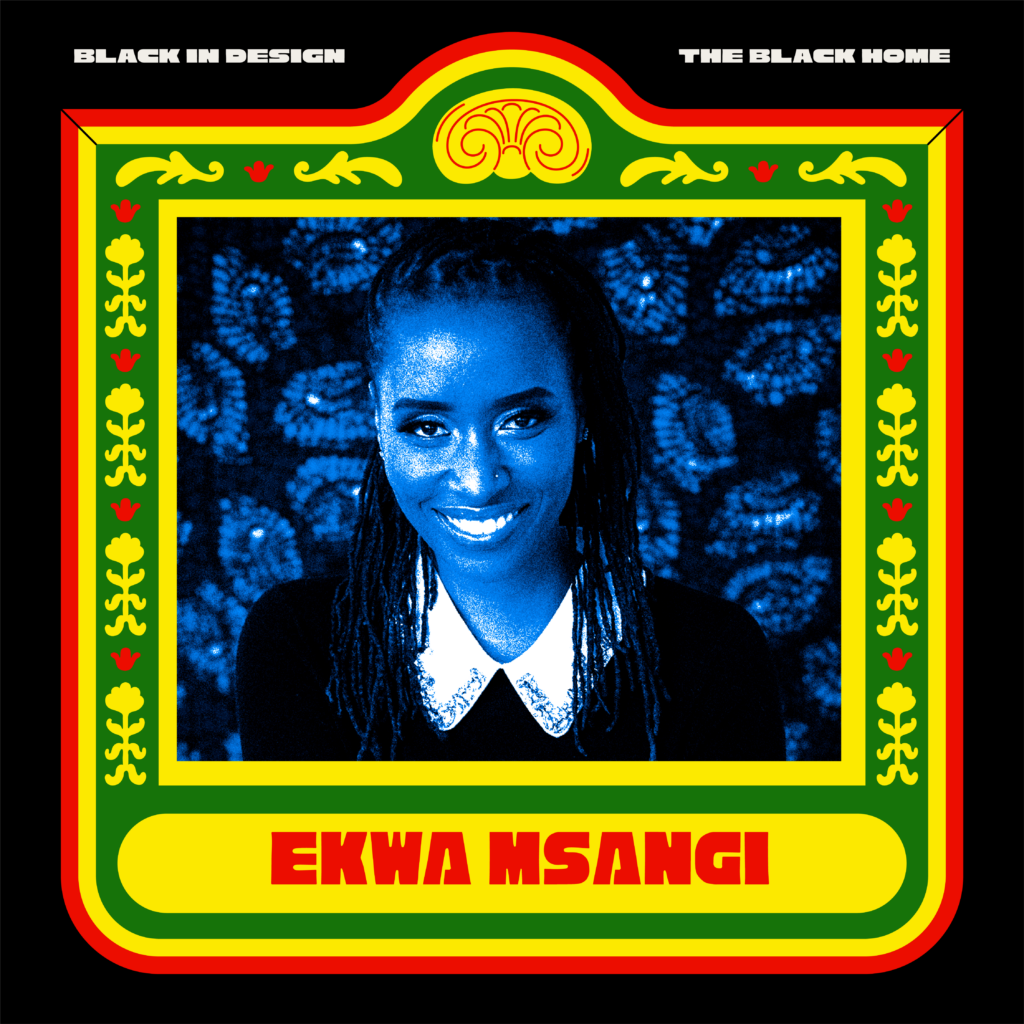
Ekwa Msangi
Ekwa’s award-winning and critically acclaimed feature film Farewell Amor premiered in competition at the 2020 Sundance Film Festival, garnering 98% on Rotten Tomatoes. The film won the Sundance Amazon Producer’s Award, and NYWIFT Directing Award amongst other distinctions, and was bought for distribution by IFC Films for North America, MUBI and Netflix for Worldwide. She has also directed for television including for Disney’s Growing Up docuseries, Showtime’s sultry Three Women, and Hulu’s Saint X season finale. For Farewell Amor Ekwa was awarded the 2021 Indie Spirit “Someone To Watch” Award, as well as becoming a 2020 Sundance Momentum Fellow, 2020 BAFTA Breakthrough, 2022 USA Artist Fellow, and 2022-2024 ReFrame Rise Director Fellow. Ekwa is currently in development on several projects, including a miniseries adaptation of the award-winning book Behold the Dreamers with Village Roadshow, and several narrative features: The Dictator Hunters with Archer Grey, MOVE! with Mandalay Pictures, and a biopic on tennis champion Althea Gibson with Park Pictures.
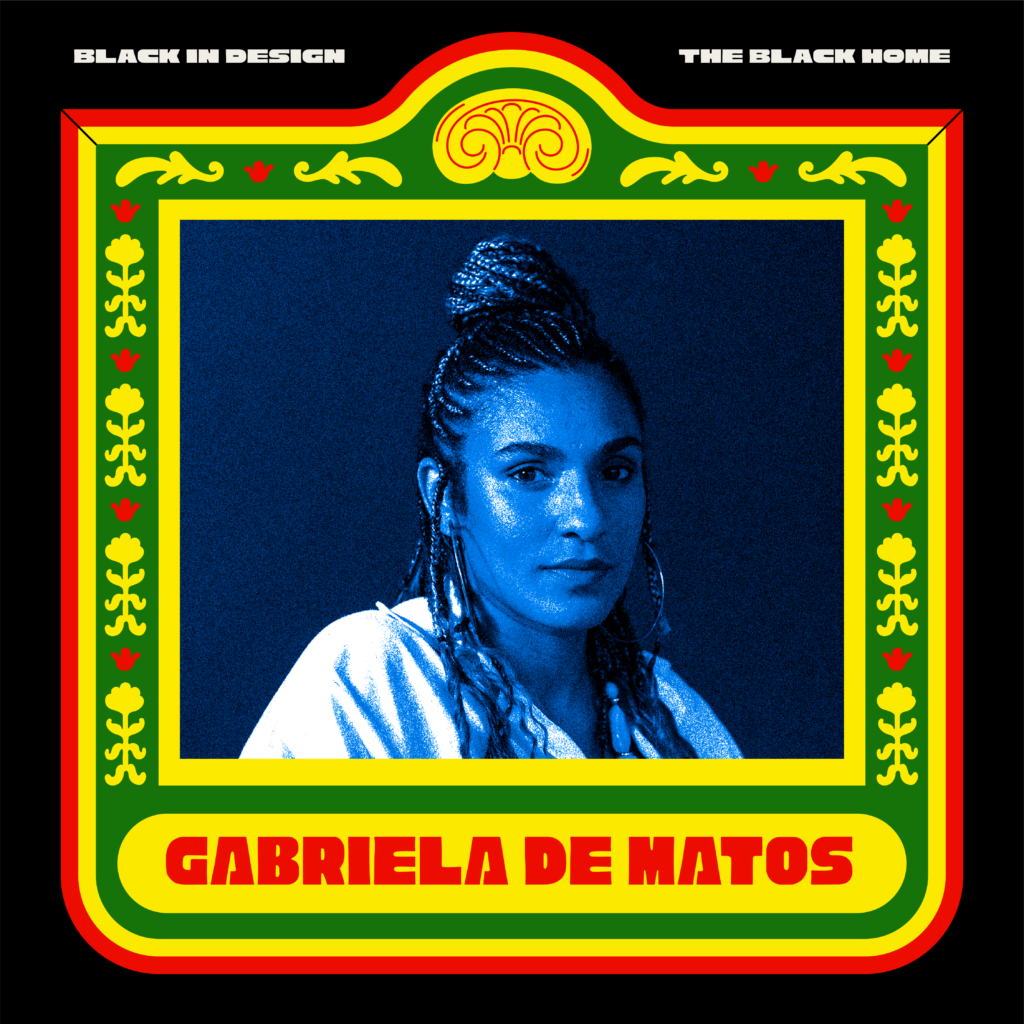
Gabriela de Matos
Gab de Matos is the curator of the Brazilian Pavilion at the Venice Biennale Architettura (2023) alongside Paulo Tavares. The “Terra” pavilion won the Golden Lion for Best National Participation. She graduated from the Faculty of Architecture and Urbanism of The Pontifical Catholic University of Minas Gerais (PUC Minas) in 2010. In 2016, Gab also specialized in Sustainability and Management of the Built Environment at The Federal University of Minas Gerais and was a Master’s student at Diversitas – Center for the Study of Diversities, Intolerances, and Conflicts at the Faculty of Philosophy, Letters and Human Sciences (FFLCH – USP). Gab was co-president of the Brazilian Institute of Architects, Department of São Paulo (IAB-sp).
Gab investigates both structural racism – and its implications in urban planning – and architecture produced in Africa and its diaspora, focusing on Brazil. She proposes actions that can promote the debate on gender and race in architecture to give visibility to the issue. She is the founder of the Arquitetas Negras project, which maps the production of Black Brazilian women architects, and is the publisher of the book Arquitetas Negras vol.1, which won the IAB-sp award for Best Architecture Publication. She directs the architecture studio Gabriela de Matos, founded in 2014, and was awarded Architect of the Year 2020 by IAB-rj.
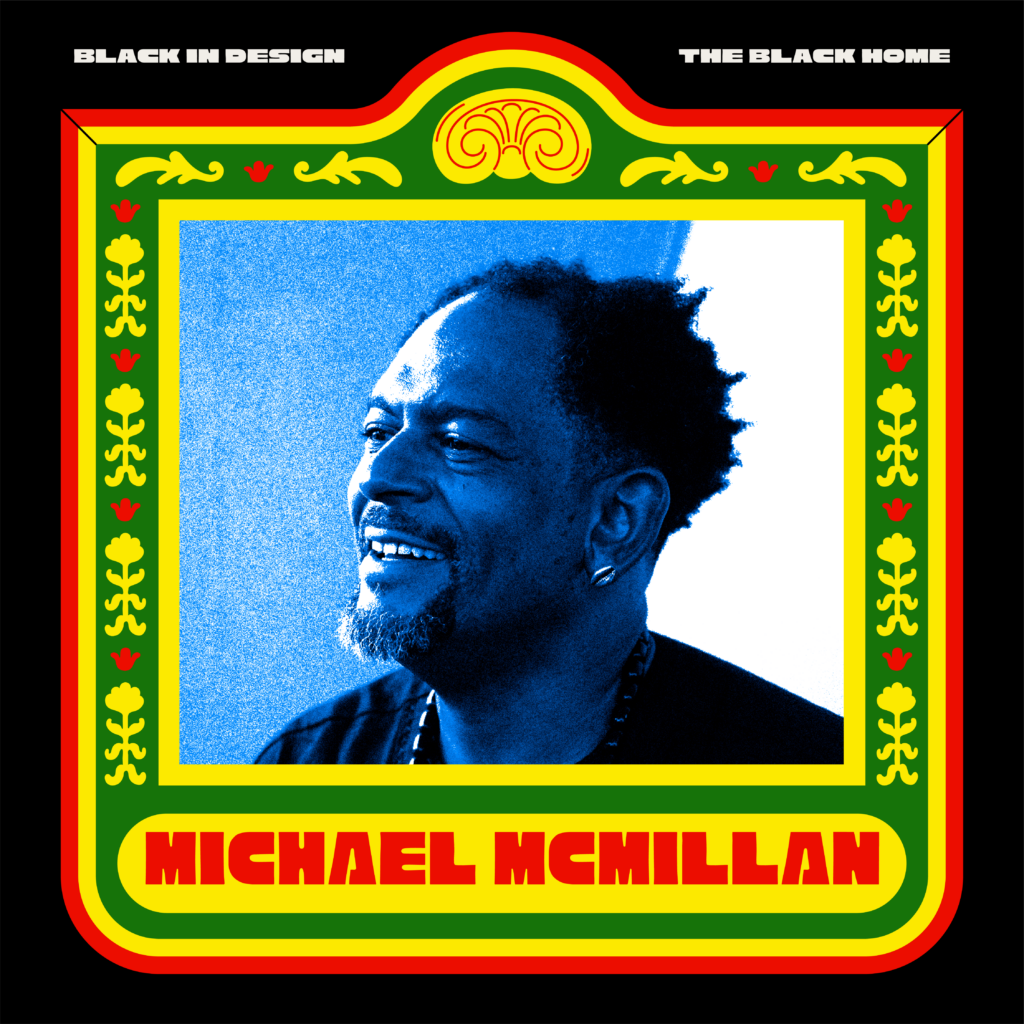
Michael McMillan
Michael McMillan, Arts.D. is a London-based writer/playwright/artist /scholar of Vincentian migrant heritage, best known for the beloved and much-praised installation The Front Room, which has been iterated in the Netherlands, Curacao, Johannesburg, and France, was in Tate Britain’s group show Life Between Islands (2021-22) that will tour to Toronto 2023-24. It also inspired the BBC4 documentary Tales from the Front Room (2007) and is now permanently at the Museum of the Home, alongside his film installation Waiting for myself to appear.
His plays include On Duty, a drama/documentary for Channel 4’s Eleventh Hour series (1984), and his 2001 BBC Radio Drama, Blood for Britain, was nominated for a Diversity Media award. Michael’s plays have been widely produced, and his recent publications include the multi-media anthology Sonic Vibrations: Sound systems, lovers rock and dub, which has a guest edition on https://writersmosaic.org.uk/, and a revised edition of The Front Room: Diaspora migrant Aesthetics in the Home (Lund Humphries 2023). His recent installation I Miss My Mum’s Cookin’ was nominated for a Brighton Fringe award.
Michael has a first Arts Doctorate from Middlesex University (2010) and is currently an associate lecturer in Cultural & Historical Studies at the London College of Fashion (UAL), and is a research associate with VIAD at the University of Johannesburg.
THE CONTINUATION OF THE BLACK HOME
This panel hopes to consider the Black home in the context of community and how we might act in service toward the continuation of both. For this conversation, we seek to understand how Black practitioners develop value-based visionary practices to acquire, design, build, and maintain Black homes and communities, that are influenced by community members’ history and culture, as well as their current and future needs. What tools/approaches should design professionals employ in order to ensure the resilience of the Black home? How does infusing Black and African diasporic culture in community planning and architectural design support the Black home’s resilience?
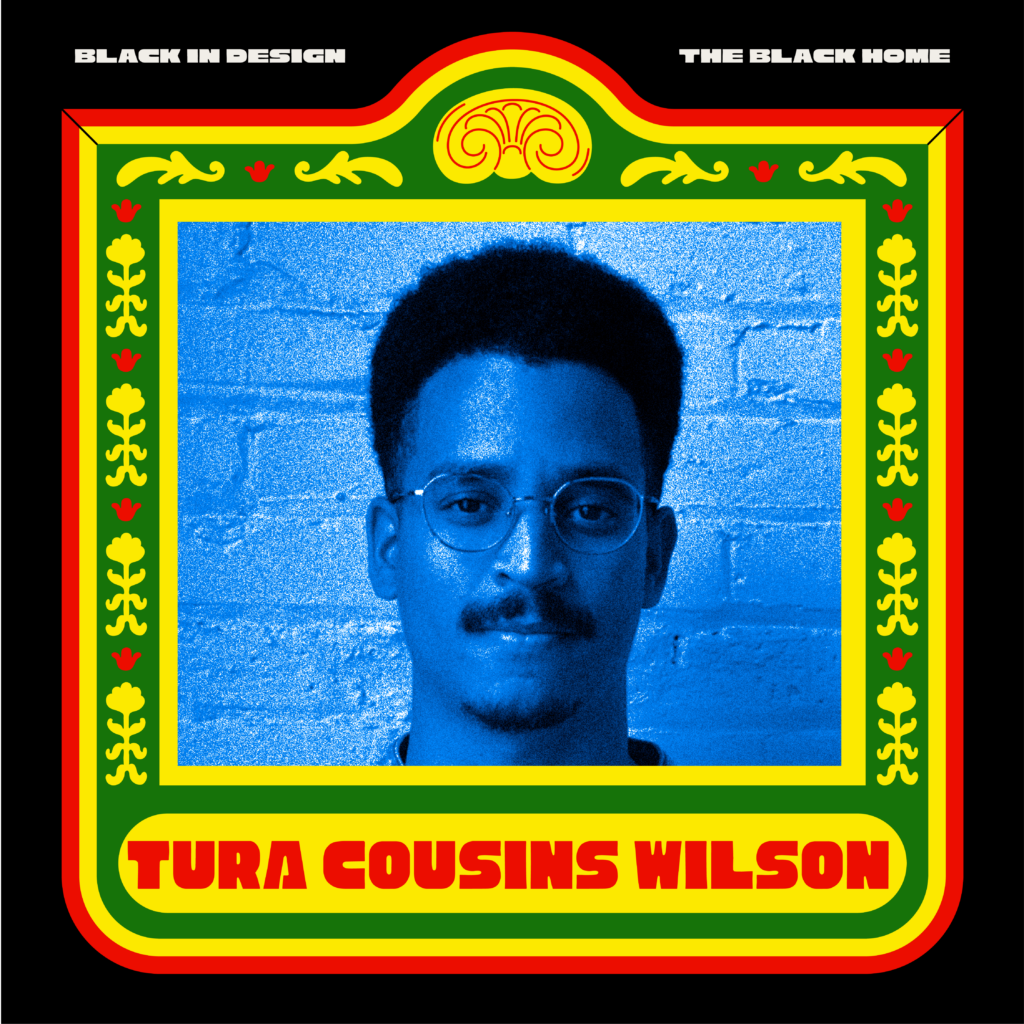
Tura Cousins Wilson
Born in Toronto, Ontario, Tura Cousins Wilson is inspired by creating uplifting spaces of beauty. He contends that architecture’s power lies in its ability to transform collective imaginations and narratives into reality.
Tura is a licensed architect in both Ontario and the Netherlands and has over 12 years of professional experience spanning a variety of scales, including multi-unit residential, large-scale mixed-use developments, libraries, community centers, and urban design. He is a co-founder and principal of SOCA, an emerging practice that applies a global lens to inform how culture and the environment influence inclusionary design. Founded in 2018 on the belief that architecture both shapes and is shaped by the contemporary condition, the studio is deeply engaged in research and the broader discourse of architecture’s impact on culture, the environment, and urbanity.
Recently, he has been working with community groups in Toronto’s Little Jamaica neighborhood to address the impacts of LRT construction, economic development, COVID-19, and cultural identity. This work included the planning and facilitating of community consultation sessions with local business owners and residents, and culminating in a report outlining guidelines and an urban design vision for Little Jamaica.
Tura is a founding member of BAIDA (Black Architects and Interior Designers Association) in Canada and currently teaches at the University of Toronto.
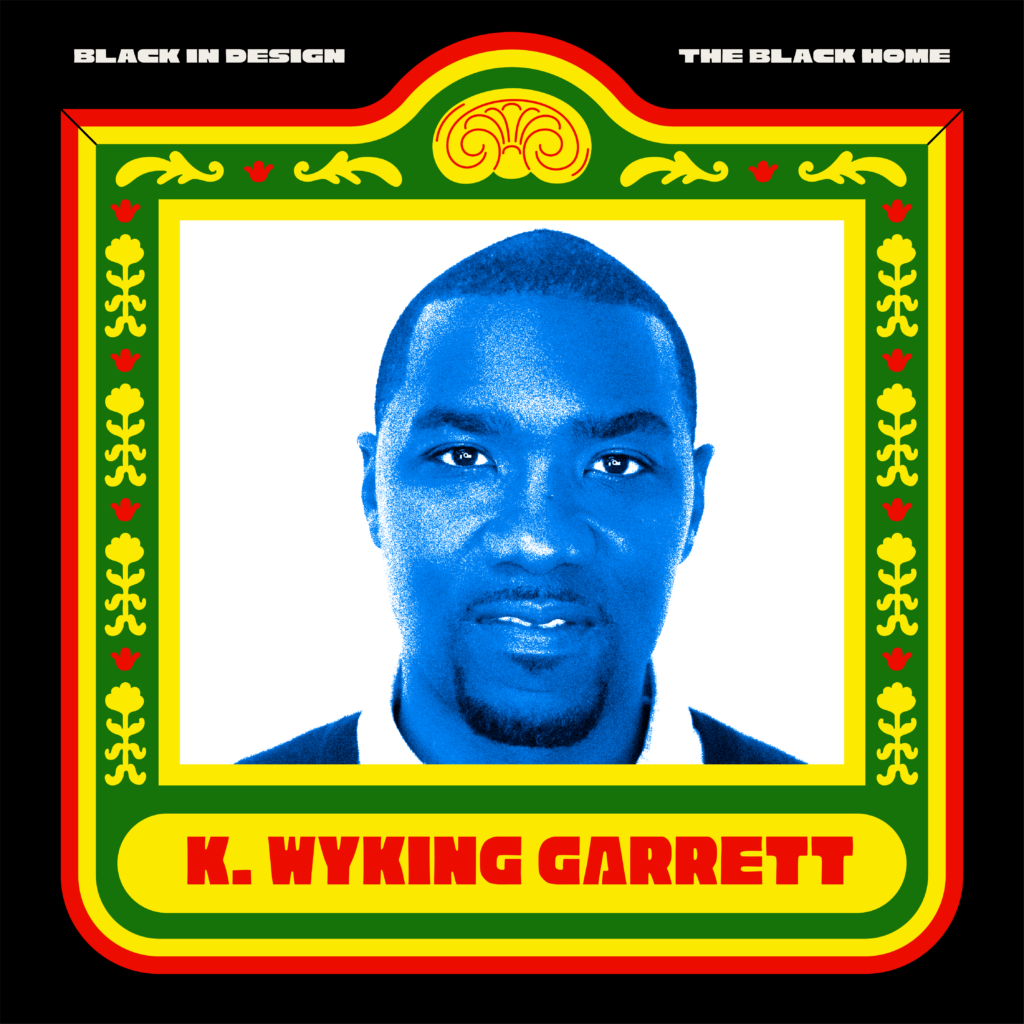
K. Wyking Garrett
Recognized by the Seattle Times as one of the thirteen most influential people of the decade shaping the region, K. Wyking Garrett is a third-generation community builder, social entrepreneur, and current President and CEO of Africatown Community Land Trust in Seattle, WA. Wyking has successfully designed programs and initiatives that inspire, mobilize, and activate communities for sustainable social impact. He has been a co-catalyst for numerous ventures, including the Africatown Seattle community development initiative, Liberty Bank Building, Umoja PEACE Center, Hack The CD, Black Dot, Umoja Fest, Africatown Center for Education Innovation, the William Grose Center and King County Equity Now.
Wyking was an inaugural member of the Seattle Music Commission and a past fellow with the national advocacy organization Green For All. He has been honored with the Center for Ethical Leadership Legacy Leadership Award, Tabor 100 Crystal Eagle Award and recognized as one of Seattle Magazine’s most influential people.

Jerome Haferd
Jerome W. Haferd is a licensed architect, public artist, and educator based in Harlem, NYC. He is principal of the award winning JEROME HAFERD studio and co-founder of BRANDT : HAFERD Architecture. Haferd is assistant professor of architecture at City College’s Spitzer School of Architecture where beginning Fall 2023 he will co-direct the new Place, Memory, and Culture Incubator.
Haferd’s practice critically engages built environment projects in both urban and rural contexts, often looking to marginalized histories to unlock a new imaginary for architecture, design, and cultural infrastructure. His work on complex sites includes collaborations with the Harlem African Burial Ground, Roots to Sky Collective, The Park Avenue Armory, and the National Black Theatre. He is lead architect and installation designer for the 2023-24 Culture, Creativity, and Care Initiative with the Mellon Foundation and Harlem Grown. The studio is one of the first prize recipients for the International Africatown Design Competition in Mobile, AL.
(HOME)MAKING, (HOME)KEEPING
This panel will explore the interior and interiority of home, paying special attention to the materials of home and how these objects not only create a sense of home but facilitate healing, remembering, and liberation. How does the Black home’s interior impact our public life? How does ancestral knowledge, traditions, and medicine inspire the future of the Black home?
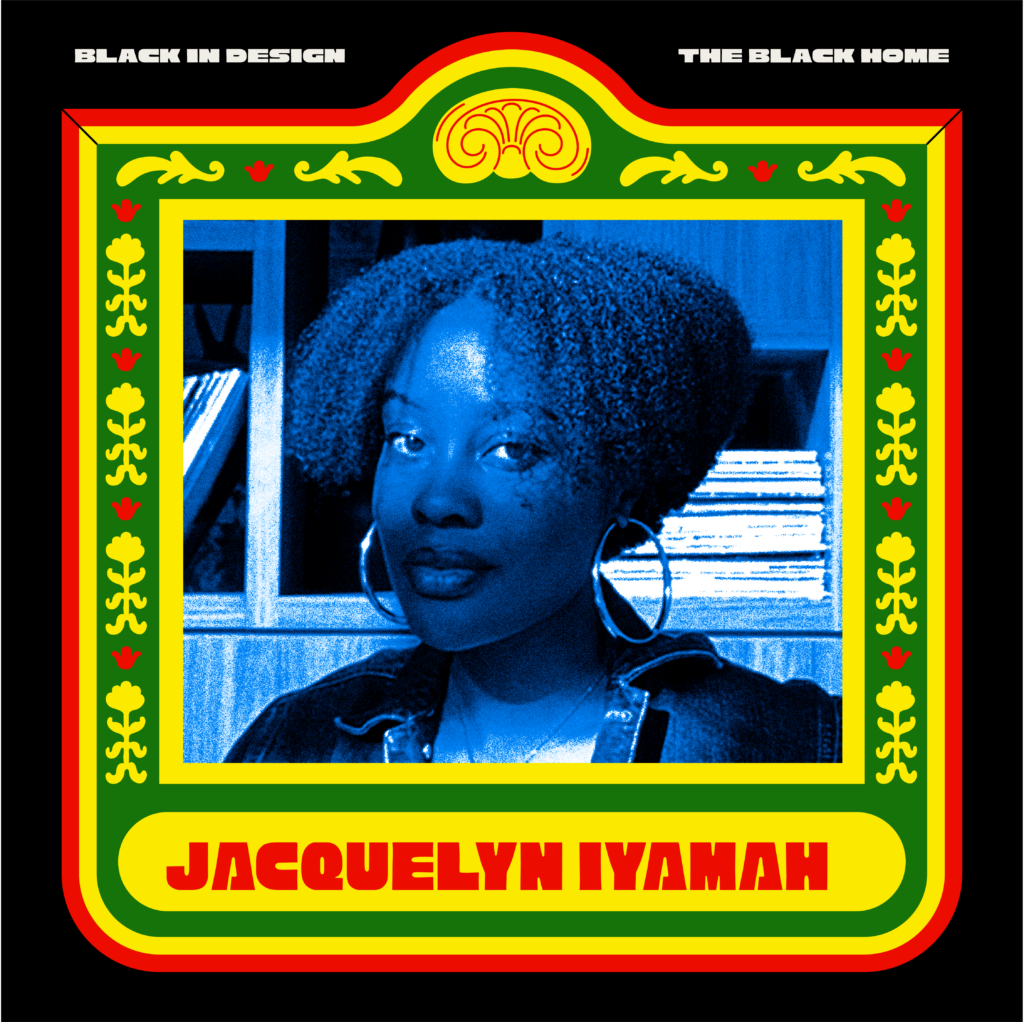
Jacquelyn Iyamah
Jacquelyn Ogorchukwu Iyamah is a Nigerian designer, writer, and visionary whose work centers on the well-being of communities of color. She taps into theory from her Social Welfare degree, praxis from her Interaction Design degree, and wisdom from her ancestors to dream up concepts and practices that unite these two disciplines.
As a cultural worker, she is the theorist behind Interior Race Theory, which explores how objects and decor can be used to inhibit or stimulate racial well-being in our interior environments. She is the founder of Making the Body a Home, which helps people stimulate racial well-being in their bodies and homes by way of education, objects, and decor. Further, she is the author of Racial Wellness, a book that helps Black, Indigenous, and people of color heal from racial trauma.
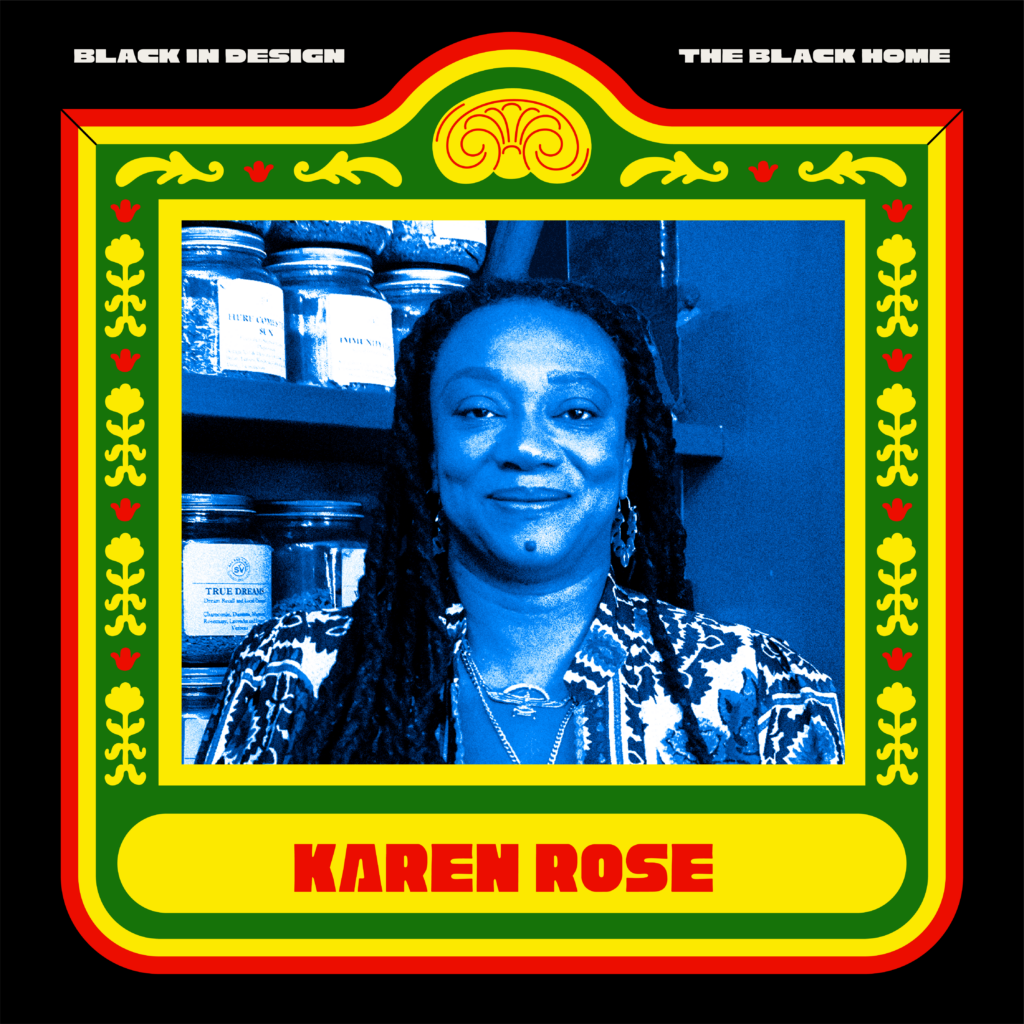
Karen Rose
Trained in Eastern and Western Herbal Medicine, Master Herbalist Karen M. Rose has dedicated her life’s work to empowering individuals to reconnect to their ancestral traditions. Karen’s inspiration for this work began as a child in her native home of Guyana, where exposure to African, Caribbean, and South American healing traditions profoundly influenced her plant medicine and community healing practice.
The opening of the Brooklyn-based, Sacred Vibes Apothecary in 2009 was merely the beginning. Karen has expanded her enterprise, opening Sacred Botanica and Sacred Spice in 2020, two new locations in Brooklyn, to make healing more accessible to the greater community. Offering guidance to those on the path to wholeness, she has trained over 1000 herbalists through her Spiritual Herbalism Apprenticeship program to reclaim their legacy and heal their communities. Karen’s accomplishments include her best-selling book, the Art and Practice of Spiritual Herbalism, published in 2022, a first of its kind in the herbalism and spiritualism genre, several in-house projects such as the Sacred Vibes’ Annual NYC Spiritual Herbalism Conference, Sacred Vibes Annual Herbal Almanac, the Global Virtual Apprenticeship Program, the Spiritual Herbalism Apprenticeship Community, and the FREE Herbal Community Summer workshops.
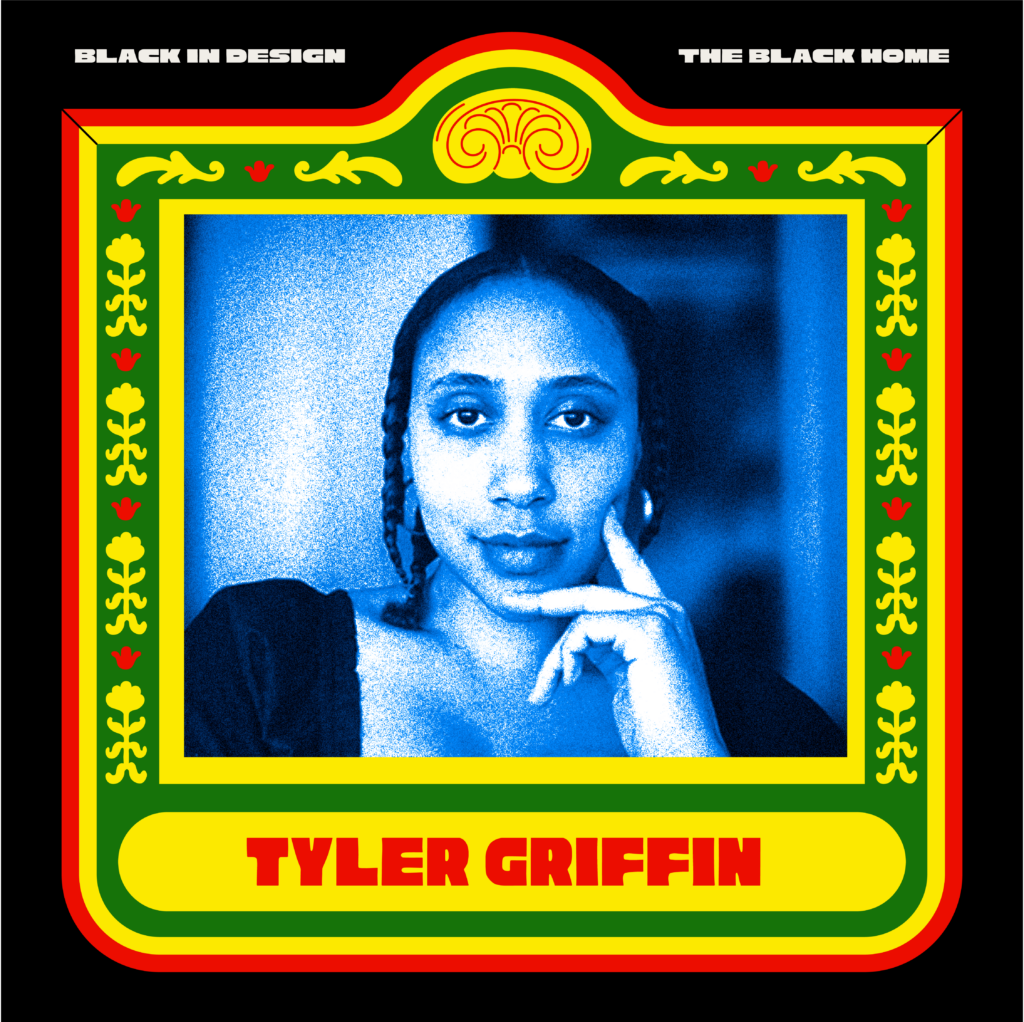
Tyler Griffin
Tyler is a Los Angeles (Tongva Land) based poet, librettist, and parent. Matrilineally, they are three generations freed from Black chattel slavery, and two Generations survived from the Holocaust. Their patrilineal line is Black American—rooting in Louisiana, Texas, and Los Angeles, CA. Tyler has the ability to craft words and evoke emotions through their carefully chosen verses. Their poems are often rich in imagery and symbolism, inviting readers to delve into deeper meanings and interpretations of ancestral veneration, race, parenthood, queerness, mental illness, disability, life, death, conflict, relationships, reproduction, social justice, and joy.
Tyler’s debut work is showcased in John Meuhlheisen’s choral piece To Whom Shall Return Us Our Children? A Ruyard Kipling Passion (2018). In 2020, Griffin was named co-finalist for the American Choral Director Association Genesis Prize: A Composer/Poet Response for her poems project entitled “Rooms.” She is currently writing and co-composing “Rooms,” transforming the work into an Oratorio which is set to be fully composed during the 2024-2025 Choral Arts year. Rooms tells the story of Griffin’s eldest sibling Edward “Eazy” J. Ingram, by way of bringing to life his personal journal archives. Rooms will capture Eazy’s unique experience by challenging stakeholders to face the joys and juxtapositions of a young Black man’s attempt to unearth his inner life. Rooms will feature a sophisticated blend of classical, trap, and hip-hop SATB music. It will invite listeners into the innermost places of the characters’ dwellings: their bedrooms, where we discover the essential humanity of all, which transcends the abstraction of their lives as simple hashtags or statistics.
Cultivating Land, Cultivating Home
This panel will consider the relationship between land and people across urban and rural contexts. Specifically, we hope to contemplate how Black communities can be empowered to claim, protect, design, and develop their land in ways that honor past generations and sustainably benefit present and future generations. How is the Black home connected to land? Why is the community, rather than the individual, crucial in the cultivation of land and the cultivation of home?
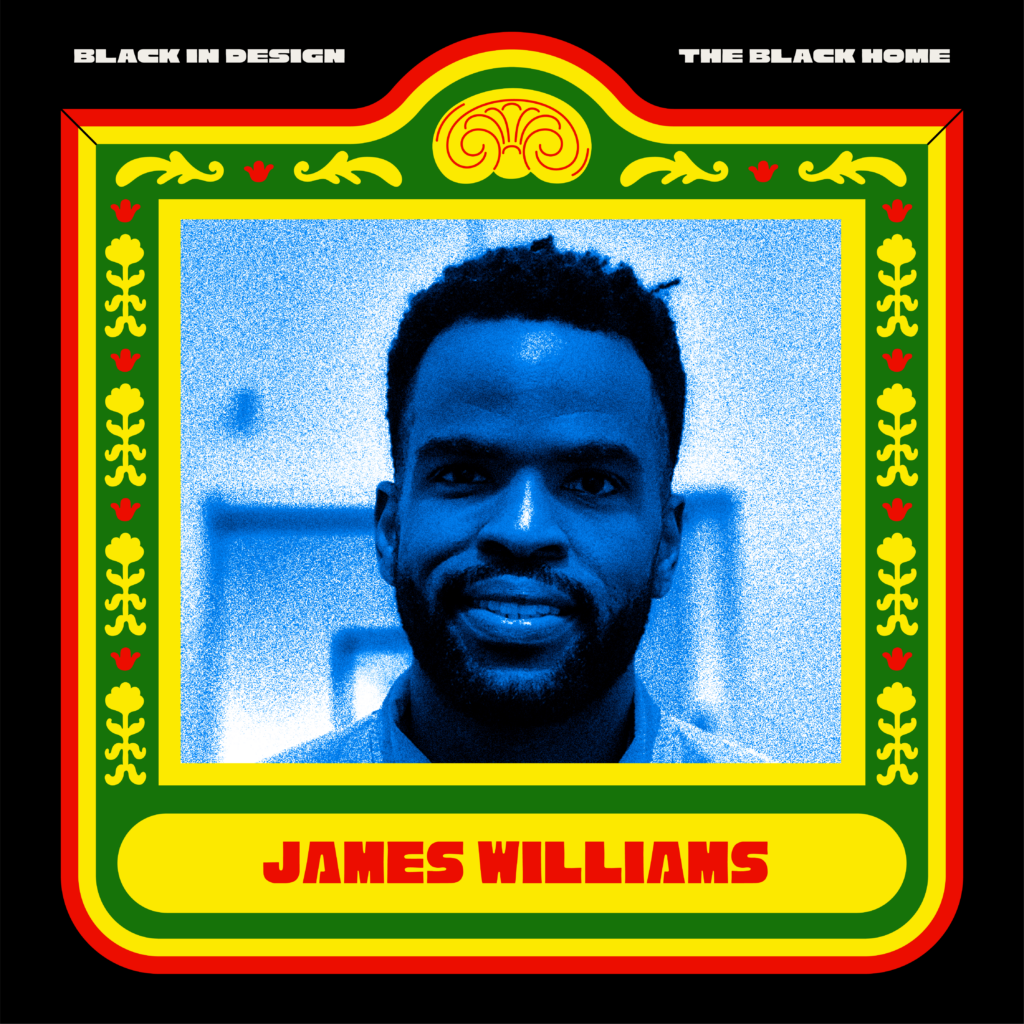
James Williams
James Williams is a forester with the Center for Heirs Property in South Carolina. He helps African American landowners manage their forests while they work on clearing title to their property. Originally from Huntsville, Texas, James grew up working alongside his father and grandfather on lumberjack crews in the forests of East Texas. Recently, James has taken an interest in Urban Forestry and working with homeowners in historically Black neighborhoods to manage the trees near their homes. He’s currently working on a project to help underserved homeowners manage hazard trees and convert them to profitable wood products. James graduated from Brown University in 2010 and completed his Master’s at The Fletcher School in 2014.
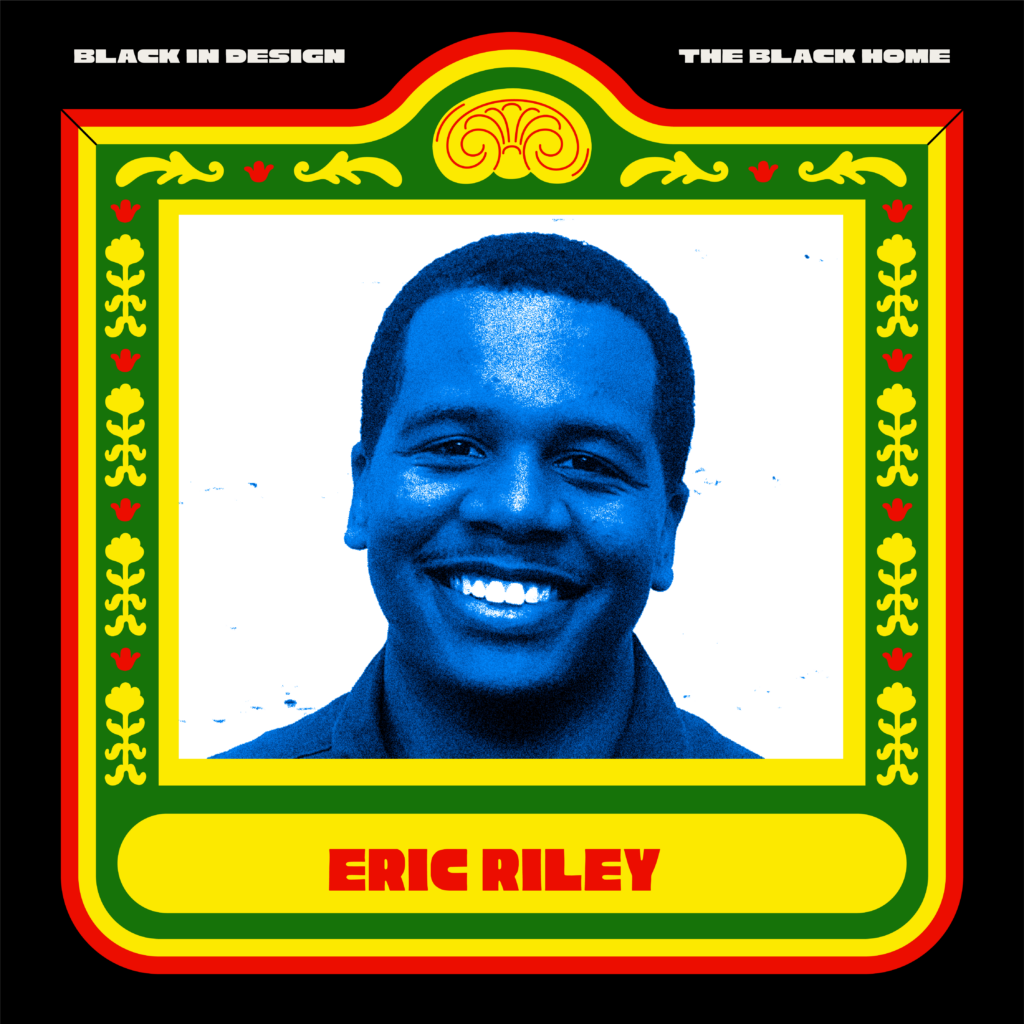
Eric Riley Jr.
Eric is a Planning Associate at KDI’s Los Angeles office. Eric is passionate about creating truly democratic and inclusive planning processes with marginalized communities of color, and finding new ways to build sincere and collaborative relationships with community partners. He provides planning, community engagement and policy analysis support for KDI’s LA-based projects. Eric has a professional background in GIS mapping, community engagement, policy analysis, and project management. Prior to joining KDI he worked at the Reinvestment Fund as a Policy Solutions Intern, preparing maps and reports and providing technical support for local neighborhood community plans. During his Master’s program, Eric worked on a sustainable urbanization Master Plan for a group of communities in Northern Bogota, Colombia, and partnered with residents in North Philadelphia to transform a vacant lot into a community owned public space. He holds a Master of City Planning from the University of Pennsylvania.
Remembering Home_Critical Fabulation and Imaginations of___
This panel will explore the work of imagining and designing for realities that do not yet exist and discuss approaches to building afro-futurist worlds that can gracefully hold Black homes. What role do artists and designers play in the vision of the Black home? How does the process of spatial imagination and reimagination inspire the Black home? What aspects of the past should we leverage to create future Black homes, and what should we leave behind?
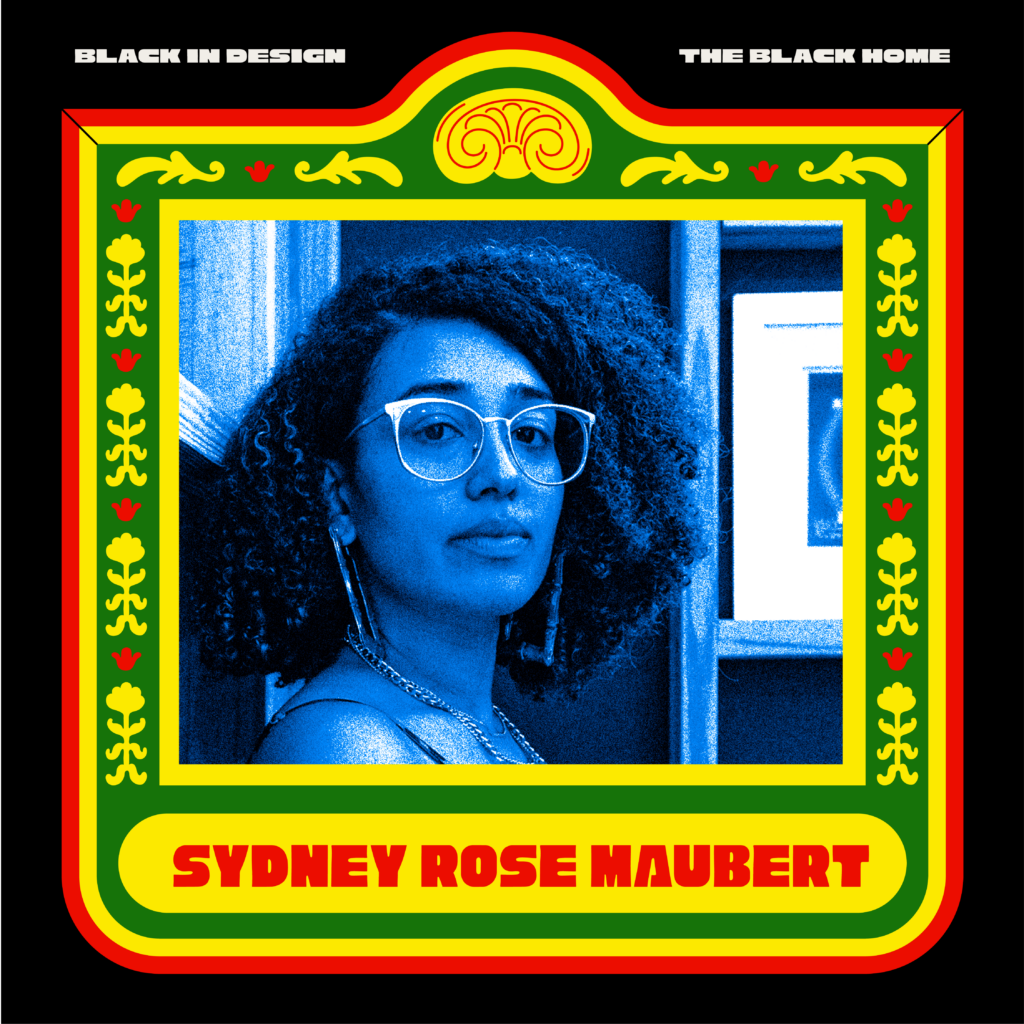
Sydney Rose Maubert
Sydney Rose Maubert is an artist, architect, and professor. She uses painting as a tool for architectural storytelling. Her research interests are architecture, geography, and cultural production in the Caribbean and American South. Black studies, gender studies, decolonial studies, history, and cultural geography largely shape the work. Informed by her Haitian-Cuban heritage, her practice explores racial-sexual perception in the built environment.
She holds degrees in architecture from Yale University and the University of Miami, with double minors in writing and art. She has received several awards, including the Cornell Council for the Arts Award, Yale Moulton Andros Award, University of Miami Alpha Rho Chi Award. She founded Sydney R. Maubert LLC., her art and mural practice. Currently, Sydney Rose is the inaugural fellow at Cornell’s Strauch Fellowship, where she will teach and produce research (Fall 2022- ongoing). She sits on the board of the Center for Architecture’s Scholarship Committee (2023). She has assisted in teaching courses at Yale University, Morgan State University, City College of New York, and the University of Miami. She is the June 2023 Artist in Residence at the Everglades (AIRIE). Her work has been published in Log, Drawing Matter, and Yale Retrospecta.
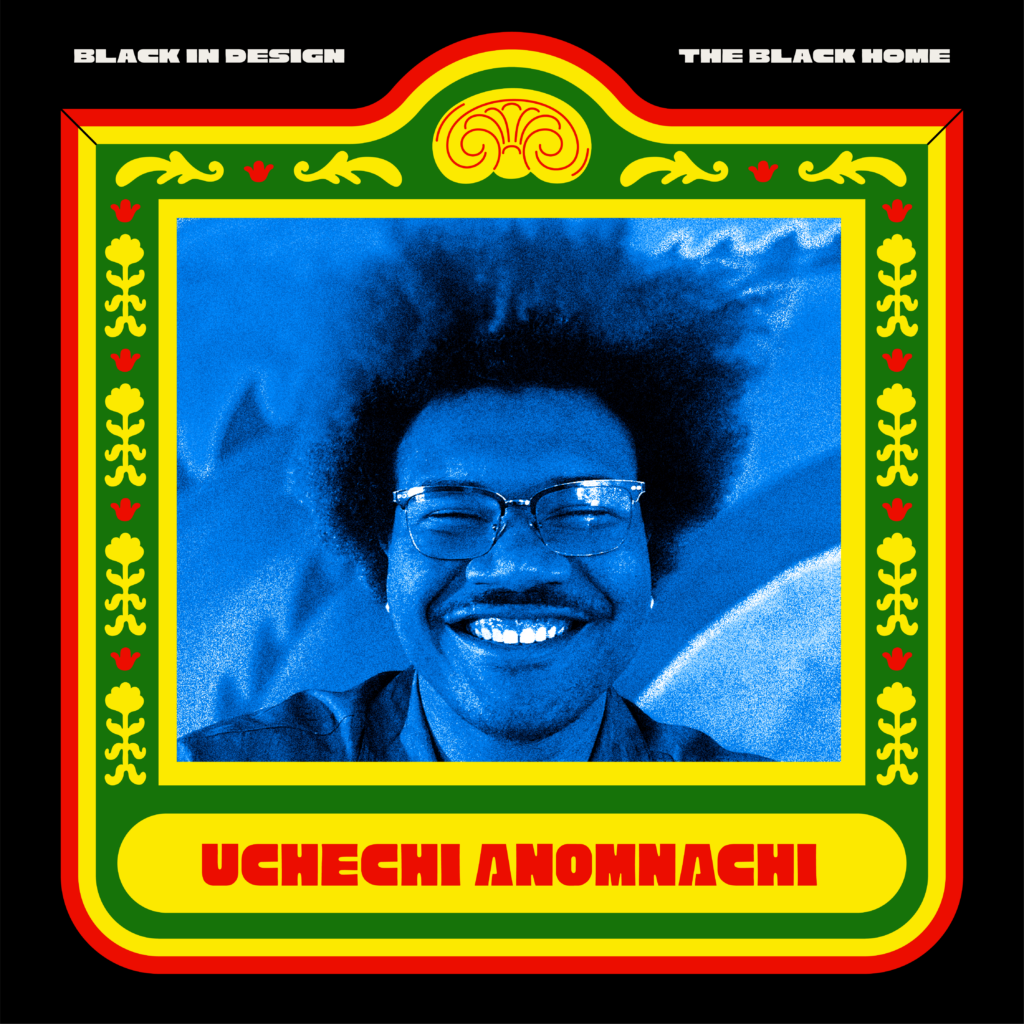
Uchechi Anomnachi
Uche Anomnachi is a PhD candidate in American Studies at the University of Iowa. He was born in Washington D.C. and attended several schools before the one where he currently finds himself. His work on Graphic blackness in sequential art led him to connect with other cultural workers interested in blackness in visual culture at the Center for Afrofuturist Studies. He is currently writing his PhD thesis on “Blackwashing” in online digital art communities. With his work, he hopes to highlight the intercession of dominant cultural narratives and forms by artists living and working in the wake. In his free time, he can be found organizing his books by descending height.
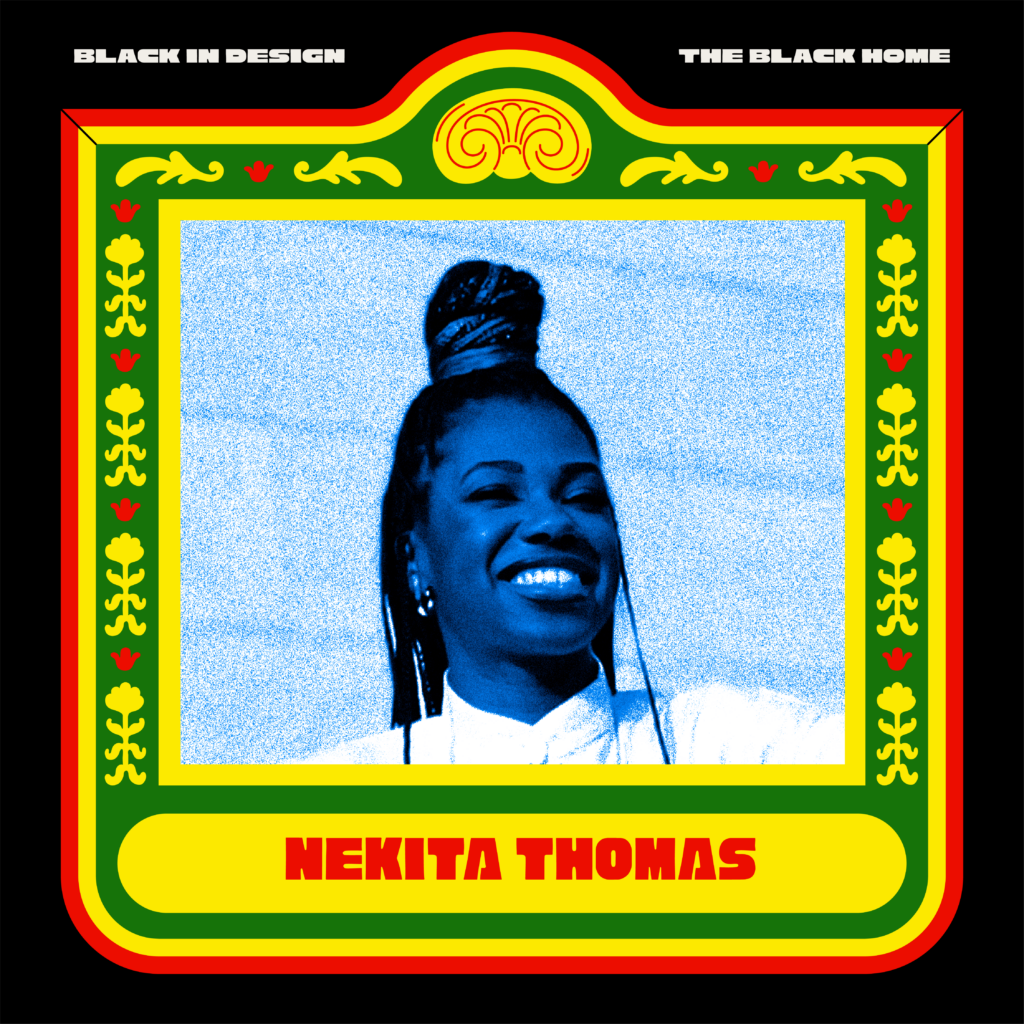
Nekita Thomas
Nekita Thomas is a designer, educator, and researcher, utilizing design as a tool for responsible design and social impact. She is dedicated to developing and implementing frameworks and tools that provoke critical thinking, knowledge exchange, and radical imagining, a process fueled by asking the pivotal “what ifs” and “why nots”. This is central to her current projects that focus on the topics of race, well-being, and urban design. At the intersection of graphic design, civic engagement, and tactical urbanism her work manifests through placemaking solutions, public installations, and participatory design workshops steering communities towards healthier environments and futures. Nekita developed Superbold, a framework and toolkit for organizations, communities, and individuals to identify racialized place-based designs and create anti-racist design solutions. This work continues to evolve through work with the National Public Housing Museum, the Chicago Sukkah Festival featured in the 2023 Chicago Architecture Biennial, SkyART chicago, and the University of Illinois.
Nekita has presented this work at national and international museums and conferences, including, the Krannert Art Museum, the American Institute of Graphic Arts Design Educators Conference (AIGA), the Feminist Decolonial Act of Care Conference (FEMDAC), and the International Association of Societies of Design Research Conference (IASDR).
Nekita Thomas holds a BFA in Graphic Design from University of Illinois at Urbana Champaign, and a MFA in Visual Studies from University at Buffalo New York. She is an Assistant Professor of Graphic Design and Design for Responsible Innovation at the University of Illinois at Urbana-Champaign.
Black Home and Queerness
The purpose of this panel is to consider the Black home through a Black queer lens, and to explore how Black queer communities have consistently created both real and imaginary, permanent and ephemeral inclusive spaces of joy, resistance, liberation, and pleasure for Black people. In what ways does queerness influence the formation and resilience of the Black home? How does community building support the conceptualization and generation of the Black home?
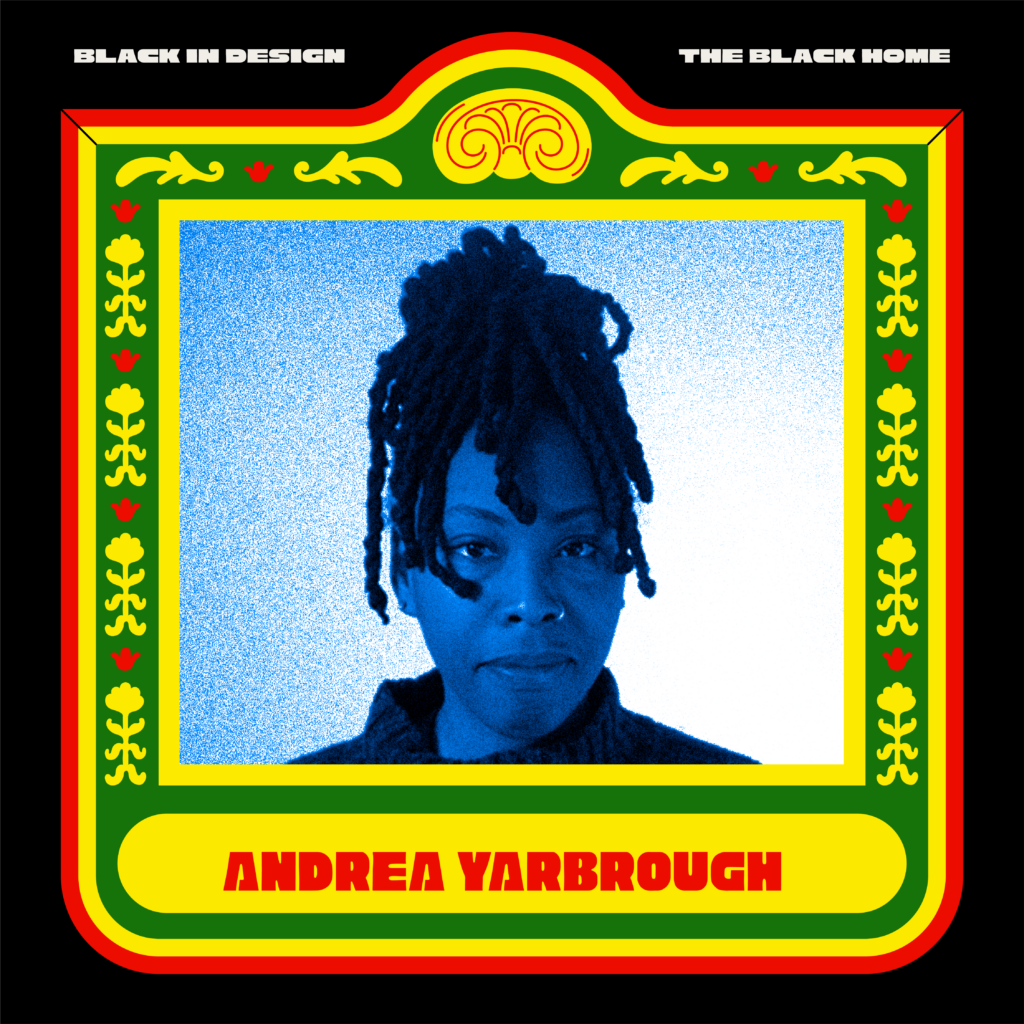
Andrea Yarbrough
Andrea Yarbrough is a multi-disciplinary artist, curator, and educator based in Chicago. She leads the collaborative placekeeping initiative, in c/o: Black women, pushing forward a Black womanist praxis of erecting sites of care by elevating the importance of witnessing and cooperative building as forms of care work. Her practice transforms everyday materials into art objects, exhuming the invisibility of understudied histories. Andrea is a proud native of the south side of Chicago and earned a MA in Museum and Exhibition Studies from the University of Illinois at Chicago. She is a worker-owner with ARC Co-op (Arts, Resources and Care) where she supports the development of a cooperatively owned and operated art center in West Englewood, Chicago.

Annika Hansteen-Izora
Annika Hansteen-Izora (they, she, he) is a writer, product designer, and creative technologist that explores futures rooted in queerness, care, and collectivity. Their multidisciplinary approach has led them to design experiences across disciplines, from anti-toxicity social media startup Somewhere Good, to community platform Ethel’s Club, to artists such as Jamila Woods and others. Deeply curious about the interweavings of design, tech, and nature, Annika is the founder of Creative Ecosystems, a digital garden and online directory for discovering communities dedicated to radical Black imagination. As co-lead of Black Feast, a culinary event that celebrates Black artists and writers through food, they explore the dinner table as a site of Black futurity. As an author, their debut work Tenderness: A Black Queer Meditation on Softness and Rage explores tenderness as a container of both joy and rage. Annika is from Palo Alto, CA and Portland, OR. You can find them by your closest body of water.
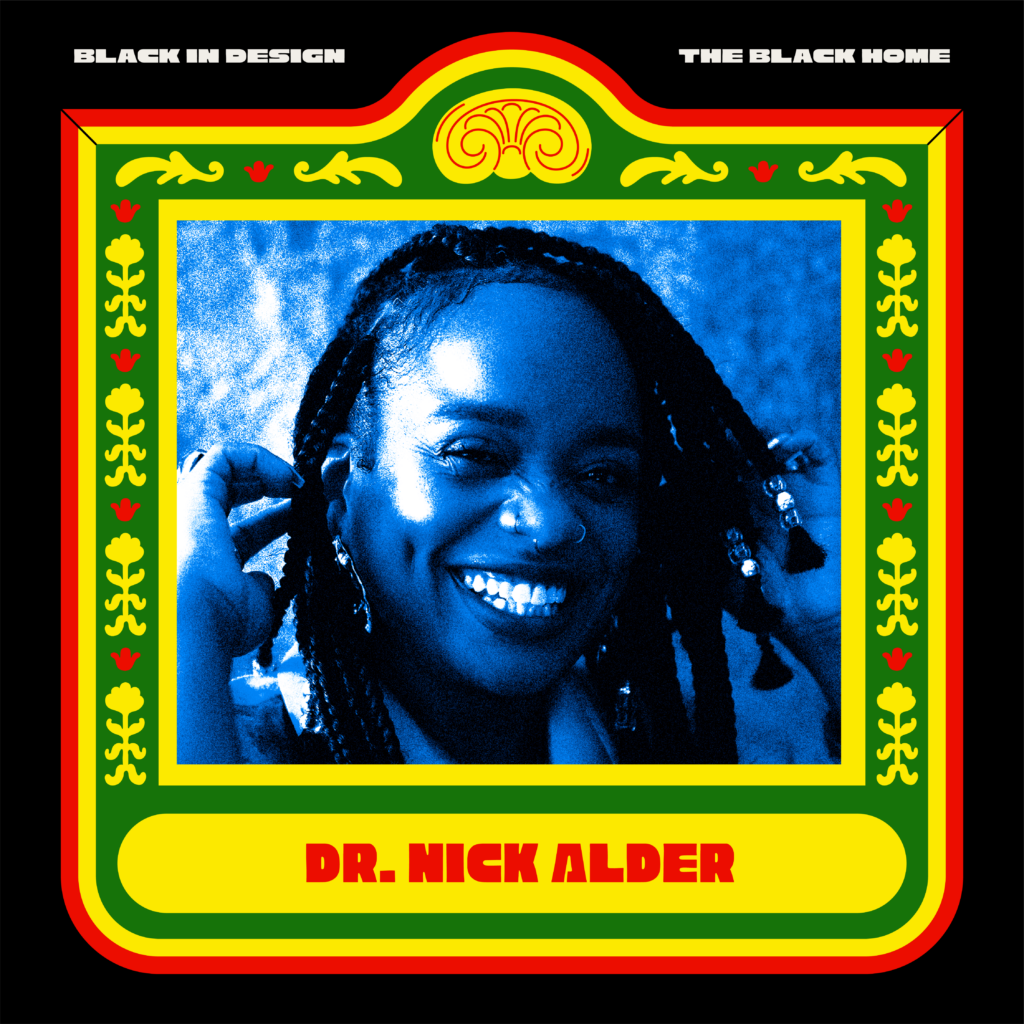
dr. nick alder
dr. nick, ph.d. (they/themme/theirs) is a creative co-conspirator, spacemaker + community designer, making healing and liberation irresistible (word 2 toni cade bambara). their work nurtures the creative spirit, crafts ecosystems of care, worldbuilding + possibility. they are guided by the words of Audre Lorde, “without community, there is no liberation.”
dr. nick works as a pre-licensed psychologist and founder of radical healing lab, an incubator + digital community for Black queer creativity + healing arts.
as a community organizer and cultural worker, nick creates spaces that privilege the Black genderqueer spectrum. through these spaces, nick co-dreams experience design, digital storytelling creation, and community building with the award-winning collective and cultural hub Party Noire.
embracing a research-based art practice, nick is on an ancestral assignment to foster diasporic belonging. currently, their exploration centers on devotion, creative practice, technology, and Black feminist healingways.
their current creative side quests include learning to code at Seeda School, DJ’ing + digital art making.
